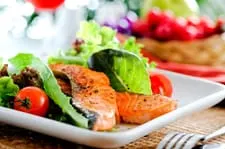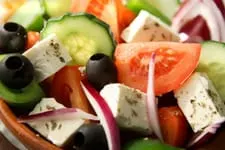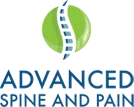


Avoid Binging
People often binge because their body is nutrient deficient. This can be solved by the following:
Avoid Eating empty calorie foods. These foods are high in partially hydrogenated oils, saturated fat, refined sugars, and low in nutritional value. I.e. cookies, soda, fruit juice, snack foods, chips, doughnuts, baked goods, fast foods, fries, etc. Your body knows when you have fed it food that is lacking in nutritional value and therefore it will be hungry again in a shorter period of time. As you continue to eat empty calorie foods high in sugar, your body will have a difficult time using this for fuel and it will eventually be converted into fat and stored in excess around your abdomen, hips, and thighs. These empty calorie foods also cause an insulin response which will cause you to have an energy crash 2 hours later as well as trigger fat deposition, diabetes, chronic inflammation, and premature aging.
Avoid drinking excess cold beverages with food. Cold liquid shrinks the blood vessels in the stomach and small intestines, reducing the stomach's ability to produce acid an utilize enzymes necessary for digestion.
Avoid taking antacids for heartburn and upset stomach. These products decrease the amount of acid which is needed for the digestion of nutrients, especially proteins, which are necessary for rebuilding and repairing body tissues.
Watch Your Carbs
When selecting carbohydrates for a meal, always choose unrefined grains, nuts, and rice. Bleaching and processing denatures essential enzymes and strips the fiber and vital nutrients from your food.
Limit your carbohydrates to 15 grams per snack and 30 grams per meal. This will help you avoid excess weight gain and promote fat burning.
Never eat carbs alone. When choosing meals and snacks, always combine protein and good fats with your carbs. This will limit the amount of insulin released into the blood stream, increase your fat burning potential, and provide a feeling of fullness so that you will not be hungry for several hours.
Eat as Many High Quality, Raw, Multicolored Fruits and Vegetables as Possible
These foods supply the proper nutrients, vitamins, and healthy carbohydrates that your body needs to prevent disease and maintain health. When eating fruit, limit yourself to 1-2 servings daily and avoid eating too many fruits that are high in fructose (natural sugars), i.e. apricots, bananas, mangos, papayas, watermelon, and raisins.
Supplement Your Diet With High Quality Whey Protein
This will give you an energy boost and the proper nutrition to supply your body with all the essential amino acids necessary for building and repair.
Avoid the Bad Fats and Eat the Good
Limit your meals to 2 grams or less of saturated fat and avoid partially hydrogenated oils at all costs. Partially hydrogenated oils or trans fats found in chips, crackers, margarine, and other baked goods lowers the HDL's (good cholesterol) raises the LDL's (bad cholesterol), produces free radicals and makes your cell walls rigid and unable to pass toxins. Use extra virgin olive oil as a substitute which is high in monounsaturated fat the "heart healthy" fat. Eat 2-3 servings of cold water fish a week. These fish are high in omega 3 fatty acids which also help improve circulation and cardiovascular function.
Never Eat Closer Than Three Hours Before Bed
Eating before bed negatively affects your body's ability to rest and recover. Foods, especially carbohydrates, stimulate the release of insulin which suppresses growth hormone, the hormone necessary for growth, healing, and repair. As stated before, insulin also promotes fat deposition which we all want to avoid.
Drink Plenty of Water
Your body is composed of 60-65% water. All the cells, muscles, tissues, and organs need water to function. You should drink 8 glasses of purified or filtered water per day or the equivalent of half you body weight in ounces. While exercising or working out in the hot Arizona sun, this value should be doubled. For example, a 160 pound person should drink 80 ounces of water daily under normal circumstances and over 100 ounces per day while exercising.
Lift Weights to Get Lean
Increasing your muscle density will help you lose weight and keep it off. Muscle burns more calories at rest, so having more muscle keeps you lean. Muscle acts as a storage depot for calories that can be called on later for energy. If you combine cardiovascular exercise with weight training, always perform the cardiovascular portion after weight training to maximize your fat burning potential.

